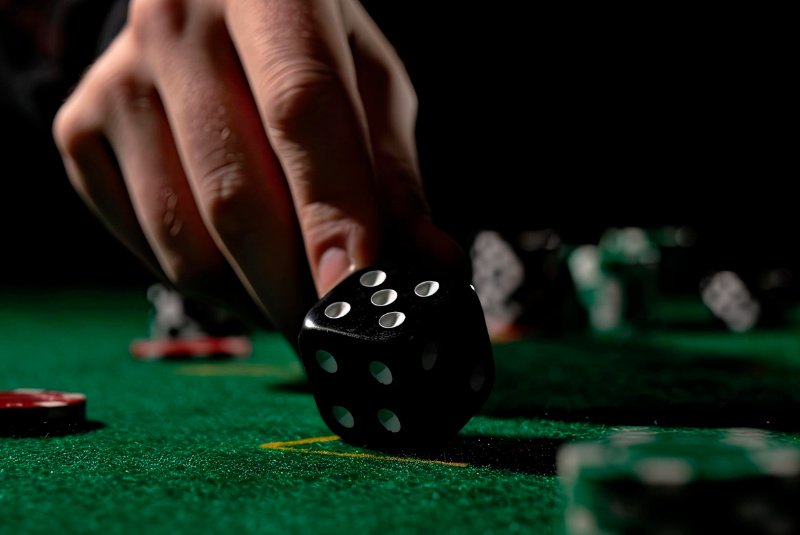Gambling addiction: Symptoms, consequences and treatment options
Gambling addiction is a serious problem that can have devastating effects on an individual's financial situation, family relationships, mental health and social life. We look at the key signs of problem gambling, the most common myths about the chances of winning, the consequences of gambling addiction and treatment options for gambling.
Article content
Gambling addiction: Symptoms, consequences and treatment options
Gambling addiction is a serious problem that can have devastating effects on an individual's financial situation, family relationships, mental health and social life. We look at the key signs of problem gambling, the most common myths about the chances of winning, the consequences of gambling addiction and treatment options for gambling.
What is gambling?
Gambling is an activity in which a player risks money in the expectation of winning. This activity includes a wide range of games, from casino games such as roulette and blackjack, to sports betting, lotteries and online gambling.
What are the risks of gambling?
Gambling is based on chance; only some games, such as poker or blackjack, involve some elements of skill and strategy that can influence the outcome, but only to a certain extent. However, the essence of gambling is always the risk of financial loss in exchange for a potential win.
When is gambling fun?
Gambling can be an occasional exciting pastime, as long as one plays sensibly and within personal limits. The key is to play responsibly and to consider gambling as a form of entertainment, not a way to make money.
What is gambling addiction?
Gambling addiction, gambling or compulsive gambling is a serious mental disorder characterised by a compulsive need to gamble, even if it has negative effects on the gambler's life.
Pathological gamblers often gamble larger and larger amounts to achieve the same level of excitement, which can lead to financial problems, relationship breakdowns and serious health problems. People with this addiction often lose control of their behaviour and are unable to stop gambling even with repeated attempts to quit.

Source.
How to recognize a gambling addiction?
Problem gambling can manifest itself in different ways and there are certain key signs that can indicate a problem gambling addiction.
Inability to stop gambling: One of the main signs is the inability to stop gambling despite the negative consequences. Gamblers often experience the urge to gamble despite significant financial losses or conflicts in personal relationships.
Raising the stakes: Problem gamblers tend to gradually increase the amounts they bet in order to achieve the same sense of excitement. This leads to more and more financial problems.
Financial problems: A typical sign and consequence of gambling addiction tends to be serious financial problems, including getting into debt, borrowing money from family and friends, or even stealing.
Problems in personal relationships: Gambling can disrupt relationships with family and friends, leading to mistrust and conflict. Gamblers may spend most of their time gambling, which negatively affects their social life.
Obsessive thoughts about gambling: People with problem gambling often think about gambling, plan their next bet and reminisce about past winnings. This constant stream of thoughts about gambling can affect their ability to concentrate on work or family life, leading to further problems.
Gambling as an escape: Many problem gamblers turn to gambling as a way to escape stress, anxiety or depression. Gambling becomes a way to cope with negative emotions and life problems.
Loss of control: People with gambling problems often lose control of their gambling, which means they cannot stop even if they want to. This can lead to repeated unsuccessful attempts to stop playing or to limit their playing.
Lying and secrecy: Gamblers often lie about the extent of their gambling or try to hide their gambling activities from family and friends. This may include hiding receipts, lying about where they spend their time, or denying the severity of their problem.
Negative health impacts: The long-term stress and anxiety associated with problem gambling can lead to physical health problems such as headaches, insomnia, stomach problems and other health complications.
Typical signs of a compulsive gambler
A pathological gambler spends most of his or her time playing or planning to play. He or she plays to escape problems or unpleasant emotions, and often lies about his or her playing. Pathological gamblers have problems with finances, which may include getting into debt, borrowing money or even stealing. These problems can lead to the breakdown of family and work relationships and social isolation.
Why do people believe they can make money from gambling?
People often believe that they can make a profit from gambling through various misconceptions and psychological mechanisms. One of the main reasons is a misperception of the chances of winning, where people overestimate their chances of success. There are many myths that convince people that they have a high chance of winning at gambling.
The most common myths about winning at gambling
Gambler 's fallacy: Many gamblers believe that after a series of losses, the chances of winning are higher. This misconception leads to constant betting in the expectation that "luck will turn".
Hot and cold slots: There is a perception that some slots pay more or less according to previous results. In reality, the results of these games are completely random.
Special strategies: Players often believe they have a unique system or strategy that will increase their chances of winning. However, gambling games are designed to be unpredictable, and no strategy can guarantee a win.
Personal influence: Some people believe that their skill, intuition or ritual can influence the outcome of a gambling game. This leads players to incorrectly believe that they can control or predict the outcome of the game, which is in fact impossible.

Source.
Consequences of gambling addiction
Gambling addiction has far-reaching and devastating consequences. Financial problems are often the first signs of a problem, where gamblers can fall into debt, face bankruptcy or foreclosure. Personal relationships suffer because of the mistrust and conflict that arises from secret gambling and financial problems. Health problems such as anxiety, depression and stress are also common, which can lead to serious physical problems.
Financial problems: Gambling addiction often leads to serious financial problems, with gamblers spending more than they can afford. This leads to debt as they borrow money from friends, family or even illegal sources.
Family and personal relationships: Problem gambling often leads to serious conflicts in family and personal life. Constant lying about gambling, financial problems and emotional tension cause conflicts between the gambler and his/her loved ones. This can lead to the isolation of the player from family and friends.
Health problems: The constant pressure from financial problems and the need to hide one's playing leads to a lot of stress, which negatively affects physical and mental health. In addition to anxiety and depression, gamblers may also suffer from other mental disorders such as obsessive-compulsive disorder or sleep disorders.
Social isolation: Gamers often isolate themselves from their friends and family because they spend most of their time playing or thinking about playing. The feelings of shame and guilt associated with their addiction can lead to voluntary isolation, further worsening their social and emotional state.
Work problems: Gambling addiction can lead to impaired work performance due to inattention, stress and lack of sleep. Gamblers may also be distracted by thoughts of gambling while at work.
Criminal activity: In a desperate attempt to earn money to gamble, some gamblers may resort to illegal activities such as theft, fraud or embezzlement, which in turn can lead to arrests, trials and prosecution, with long-term consequences for the player's life and reputation.
How can I treat a betting addiction?
Acknowledging the problem
The first and essential step to treating a gambling addiction is acknowledging the problem. The gambler must admit to himself and those around him that he has a problem that he cannot control. This acknowledgement is often the hardest part of the process as it requires courage and self-reflection. Without this step, any efforts at treatment are ineffective because the player does not accept responsibility for their actions and their consequences.
Acknowledging the problem opens the door to seeking professional help and support, which is essential to successfully overcoming addiction. The first step may be an anonymous consultation on the Gambling Helpline(777 477 877) or a group chat for gamblers and their loved ones. Here, a gambler can get useful information about gambling addiction, non-judgmental support and understanding, and recommendations for specific steps to address the problem.
Psychotherapy
Psychotherapy is one of the main pillars of gambling addiction treatment. Cognitive Behavioural Therapy (CBT) helps individuals recognise and change negative thought patterns and behaviours associated with gambling. The therapy focuses on identifying triggers of gambling behavior and developing healthier ways to cope with stress and emotions.
Support groups
Support groups, such as Gamblers Anonymous, offer an environment where people can share their experiences and get support from others facing the same issues. These groups provide a structured program for recovery and offer long-term support.
Outpatient treatment for gambling addiction
Outpatient treatment for gambling addiction involves regular visits to a therapist or counselor to allow patients to continue with their normal lives while they work on their addiction. This type of treatment is suitable for individuals with less severe forms of addiction and offers flexibility in scheduling therapy sessions.
Residential treatment for gambling addiction
Residential treatment is a more intensive form of treatment that involves staying in a treatment facility for a period of time. This treatment provides a structured environment where patients can fully focus on their recovery without outside distractions. Residential treatment is often recommended for individuals with severe addiction or for those who have failed outpatient treatment.
Advice for loved ones of pathological gamblers
The loved ones of the addicted gambler should be informed of the problem and should be involved in the treatment process. It is important to provide emotional support and be patient, as change takes time. Loved ones should also look after their own mental health and seek support for themselves if needed.
How can I help my gambling loved one?
If you have a loved one who suffers from a gambling addiction, it is important to be supportive and patient. Communicate openly about the problem and offer to help seek professional help. Educate yourself on how to help the gambler and how to treat the gambler.
It is also important to protect yourself and others close to you from the negative effects of the gambler's behavior. If communication is not working, consulting the Gamblers and Loved Ones Helpline (777 477 877), seeking help from a professional or support group can help.

